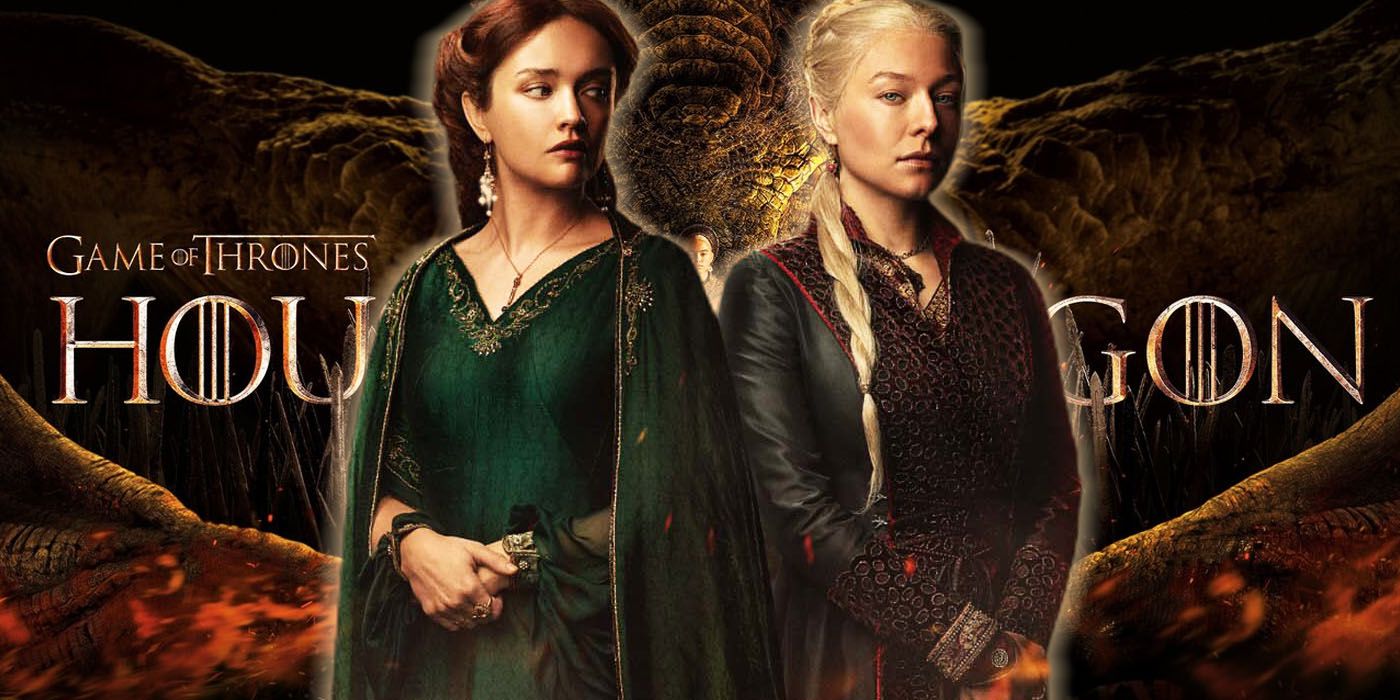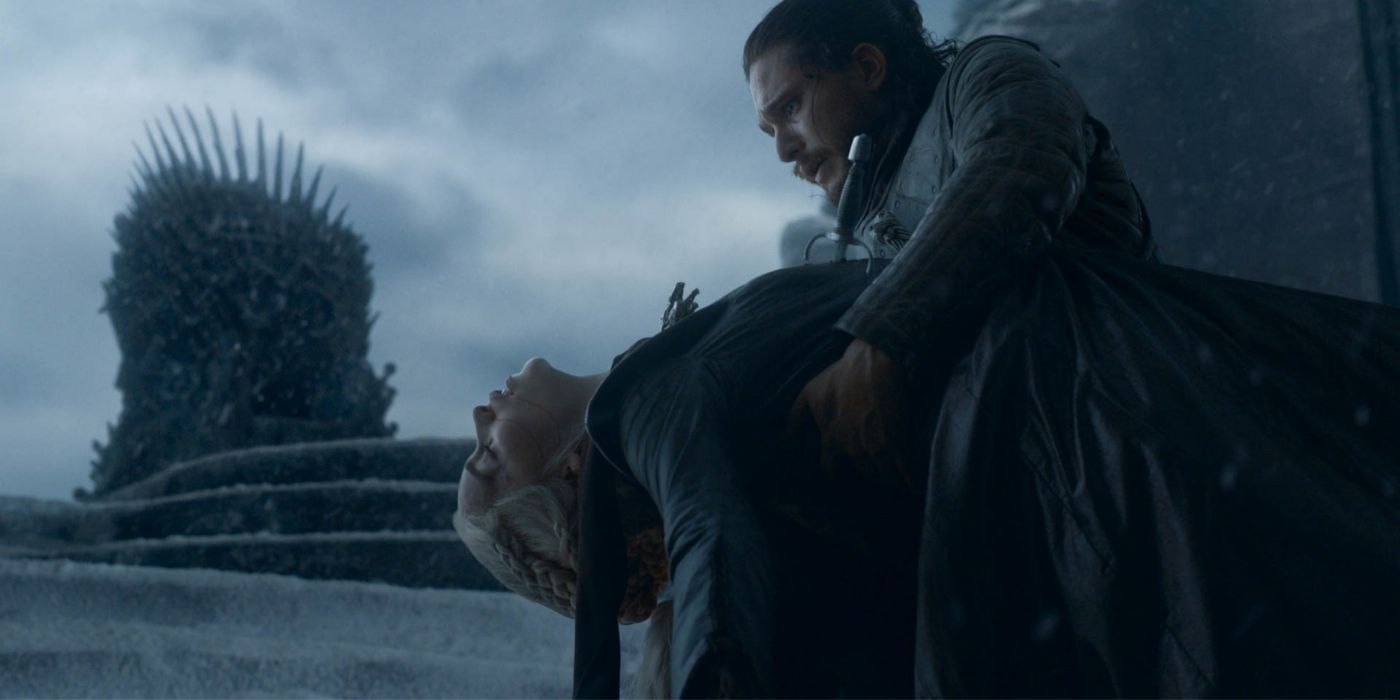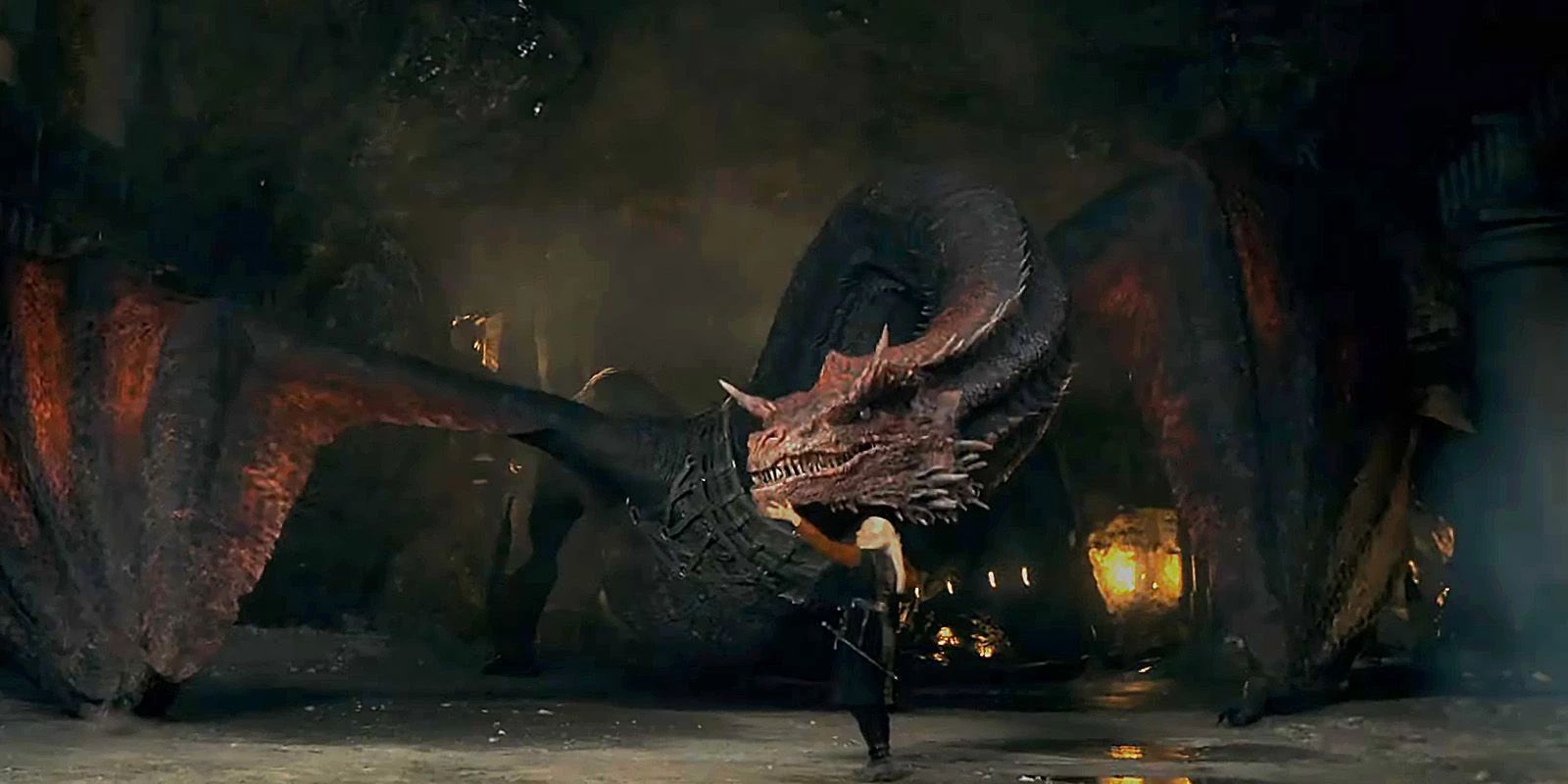For the second time in a month, HBO's hit series has House of the Dragon has lost an executive producer. Shedding top producers seems like a bad omen for the Game of Thrones prequel. But given how that series ended, the House of the Dragon turnover may not be terrible; it may even be good.
It is a time of tumult at Warner Bros. Discovery, especially where HBO and HBO Max content is concerned. The departure of Joselyn Diaz is reportedly HBO not renewing her single-year contract. More concerning was the earlier exit of Miguel Sapochnik, but the former co-showrunner cited exhaustion when he stepped down. Season 2 also gained a new director and executive producer in Alan Taylor, who directed landmark episodes of Game of Thrones. He brings a familiarity with the world, as well as lessons learned on the sets of other prestige series like Mad Men and The Sopranos. His addition also shows that no producers are bigger than House of the Dragon itself.
George R.R. Martin recently compared Game of Thrones to Star Wars, and there is a similarity. Like 1970s Star Wars fans and George Lucas after the prequels, Game of Thrones fans have a complicated relationship with David Benioff and D.B. Weiss. The two writers approached Martin to adapt his books for HBO when they weren't a guaranteed hit. These two wild men read Martin's novels written in defiance of television budgetary limitations and took that bet. Any GoT moment viewers ever enjoyed on HBO exists only because of them. Yet Game of Thrones was a difficult show to make, they'd run out of source material and their attentions moved from Westeros to a galaxy far, far away.
One way fans reconciled disappointment in those final seasons was to blame the showrunners for ending the series rather than passing it on. There is a world in the multiverse where Benioff and Weiss handed Game of Thrones off to one of their other producers or directors. They would have stayed on as EPs in name only, leaving the writing and showrunning duties to their replacements. They could have told the same story, just with a few more hours to help some inexplicable decisions in the final acts feel more natural. House of the Dragon will be an entirely different show in later seasons. Tying the fate of the series to one or two producers would be a huge mistake.
There is still one original executive producer left: Ryan Condal, who's now serving as the series' sole showrunner. He has promised to continue to work closely with Martin -- the other element missing from the final seasons of Game of Thrones -- ensuring both viewers and HBO that the show is still in good hands. Whoever runs the show should keep Martin on speed dial, taking his ideas and perfecting them for television.
House of the Dragon is one of Warner Bros. Discovery's most important properties right now. It's a critical and ratings hit -- a needed win for shareholders to see the company can still do its job after plummeting stock prices. Even if the staff exits thus far are related to simple contract limits or personal reasons, Condal, Taylor and the rest of the storytellers have expectations the size of Caraxes hanging over their heads.
New episodes of House of the Dragon air Sundays at 9:00 p.m. on HBO and stream on HBO Max.



